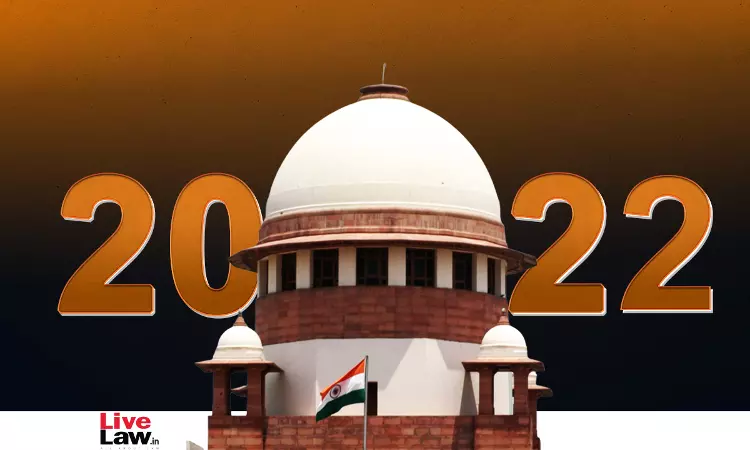Next Story
28 Dec 2022 6:50 PM IST
As the year comes to an end, it is time to look at various references made by the Supreme Court of India. As such, this article details important references made by the Supreme Court in the year 2022. 1.Hijab Ban Case: Is restriction on Muslim girl students wearing Hijab in educational institutions in Karnataka constitutional?Case Title: Aishat Shifa versus State of Karnataka and others |...

